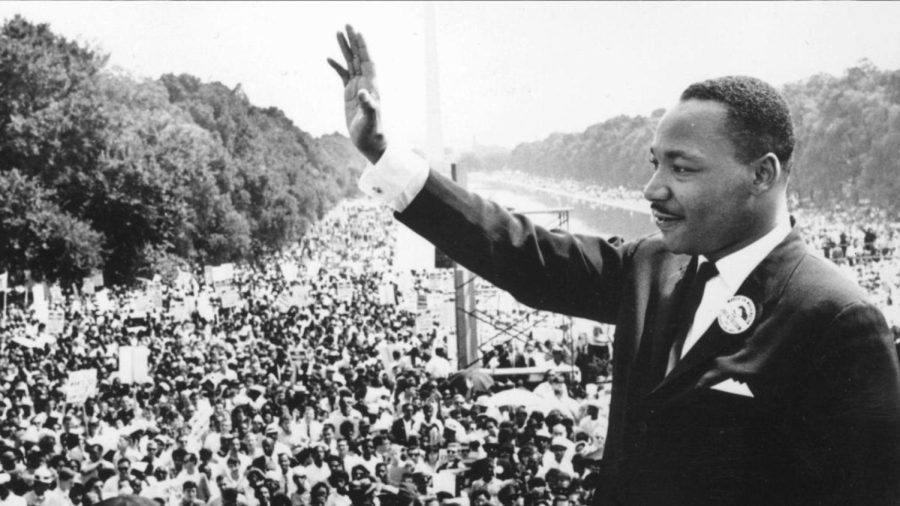Martin Luther King Jr.
In honor of Black History Month, every school day The Cardinal will feature a prominent and historical Black American, living or dead, who has worked toward change, advancement, and/or world peace. Some of them are heroes, and some are unsung heroes, who deserve recognition, and have made a contribution to society.
February 8, 2022
Martin Luther King Jr was an American minister and activist who worked to advance civil rights for people of color in the United States through nonviolence and civil disobedience, inspired by his Christian beliefs and the nonviolent activism of Mahatma Gandhi. He is well known for his “I Have A Dream ” speech.
As a kid, King wanted to be a lawyer like his father. His father said “If you wanna be a lawyer, you gotta study very hard.” After that, King took his father’s advice and during King’s junior year in high school, Morehouse College—an all-male historically black college that King’s father and maternal grandfather had attended. He played football and graduated from Morehouse with a Bachelor of Arts (BA) in sociology in 1948, at the age of nineteen.
King enrolled in Crozer Theological Seminary in Upland, Pennsylvania. King became known as one of the “Sons of Calvary”, an honor he shared with William Augustus Jones Jr. and Samuel D. Proctor who both went on to become well-known preachers in the black church. King graduated with a Bachelor of Divinity (B.Div.) degree in 1951. He then began doctoral studies in systematic theology at Boston University. King attended philosophy classes at Harvard University as an audit student in 1952 and 1953. King received his Ph.D. degree on June 5, 1955.
King participated in and led marches for the right to vote, desegregation, labor rights, and other civil rights. He oversaw the 1955 Montgomery bus boycott and later became the first president of the Southern Christian Leadership Conference (SCLC). As president of the SCLC, he led the unsuccessful Albany Movement in Albany, Georgia, and helped organize some of the nonviolent 1963 protests in Birmingham, Alabama. King was one of the leaders of the 1963 March on Washington, where he delivered his “I Have a Dream” speech on the steps of the Lincoln Memorial. The civil rights movement achieved pivotal legislative gains in the Civil Rights Act of 1964, Voting Rights Act of 1965, and the Fair Housing Act of 1968.
On April 4th, 1968, King was assassinated by a gunshot to his right cheek, breaking his jaw and several vertebrates that traveled down his spinal cord and broke more bones before it lodged into his shoulder. The perpetrator was James Earl Ray. King is buried in Memphis Tennessee. Every single one of his followers are inspired by him and will continue to keep his legacy alive.


